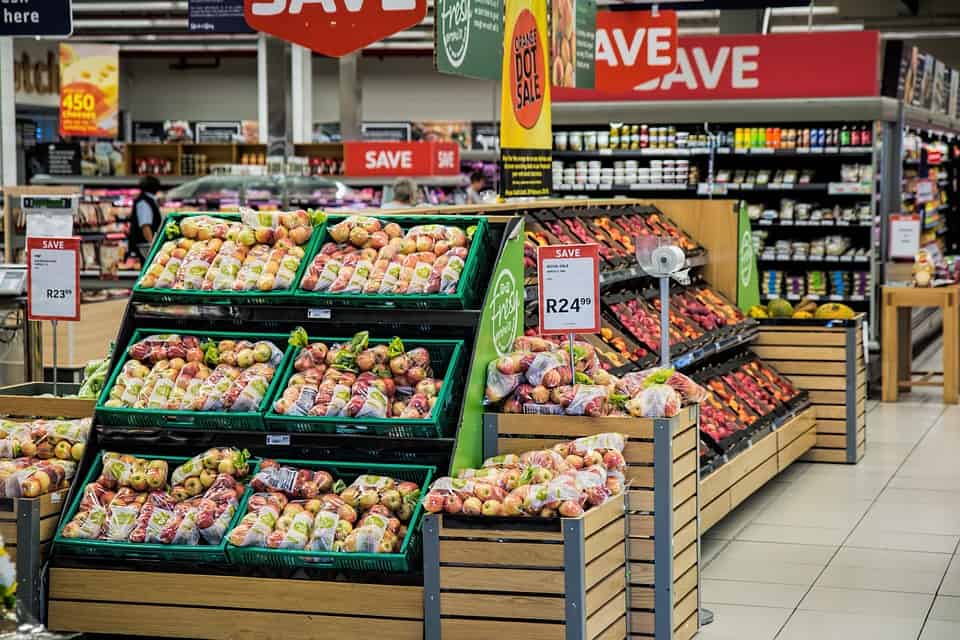
The Sustainable Livelihoods Foundation (SLF), in partnership the DST-NRF Centre of Excellence in Food Security (CoE) and the Institute for Poverty, Land and Agrarian Studies (PLAAS) at the University of the Western Cape, has submitted written input to the “Grocery Retail Sector Market Inquiry.”
Initiated by South Africa’s Competition Commission, the inquiry is aimed at looking into features present within the grocery retail sector that, according to the Competition Commission’s website, “may prevent, distort or restrict competition in this sector, and to pursue the purpose of the Competition Act.”
Multiple downgrades over the past few months, a shrinking economy and increasing levels of unemployment in South Africa has left many consumers exposed to ever-rising costs of living. The timing of this inquiry couldn’t have come at a better time for consumers.
“Corporate retailers constitute an important element of the core of the South African food economy. Our submission argues that formal sector grocery retail is distorting food economies in ways which disadvantage other stakeholders of food value chains,” explains SLF director, and CoE affiliate, Dr Leif Petersen.
The effects of these distortions are felt both upstream in the packaging, processing and production of food as well as horizontally among informal-sector grocery retailers. The latter has impacted negatively on township grocers who are pushed out by large corporates who, through shopping malls and large chain businesses, create localised grocery retailing monopolies in townships.
Importantly, “with government commonly outsourcing the distribution of SASSAgrants through corporate retailers, those (retailers) operating in townships are able to maintain a stronghold in these settings through their ability to ‘capture’ essential revenue streams,” Petersen explains.
Similarly, procurement standards and contracts of formal-sector grocery retailers set exclusionary standards that favour large, capital-intensive corporations while disadvantaging small, independent operators.
For example, the formal market is a particularly hostile environment for smallholder farmers as supermarket business practices favour large producers who can guarantee volumes and quality, according to schedules set long in advance and with the capital necessary to carry costs including labelling, standards compliance, refrigeration and transport.
According to Dr Petersen, “these standards disadvantage smaller producers and suppliers and hinder their ability to compete.”
However, not all is lost. The inquiry into the grocery retail sector presents an opportunity to begin to look for ways to address the challenges faced by informal traders and, in due time, look to level the playing field. And government has a big role to play in finding solutions.
Dr Petersen says “much of the change required to level this playing field and limit the unfairness of structural conditions falls to government,”. One way to do this is through implementing policy to help ease the legal and technical processes for formalising informal businesses.
“This includes activities such as amending and relaxing town planning laws to incorporate the residential reality of township informal grocery retailing, and easing the requirements for permitting and licensing in order to bring township business into a regulatory framework,” he adds.
Without such actions, these enterprises will not have the opportunity to legitimise and grow. Furthermore, future shopping mall developments must be compelled to incorporate at least 25% (or more) space for local township businesses, and supermarkets should be compelled to carry a proportion of stock produced by smallholders. Equally, “enhancing independent SASSA payout systems with similar reach and security should be pursued, with particular emphasis on how these can be located to enhance benefits to informal traders,” Dr Petersen concludes.
After a round of public hearings in Johannesburg, Cape Town and Durban, the grocery inquiry is in its late stages, and is expected to conclude its findings in coming months.
About the SLF: The Sustainable Livelihoods Foundation is based in Wynberg, Cape Town. The SLF recognises that emerging cities are the growing South African reality and works to deal with the socio-economic complexities that arise from this transition. To this end, the Foundation has conducted research and policy engagement with respect to various disciplines, but in particular the growing entrepreneurial and self-help informal economy of townships.
related Articles
Breede River Municipality hosts unique food security learning journey
“During two sunny winter days in early May, the Breede River Municipality (BVM) hosted a ‘learning journey’, an innovative…
Unique food and nutrition journey
“Worcester was recently the location of a ‘learning journey’ where participants gained first-hand experience of challenges in the town’s food…
Localised food systems key to economic inclusion and environmental sustainability
Photo by Ashraf Hendricks. Localised food systems key to economic inclusion and environmental sustainability by Neil Overy, Daily Maverick May…



